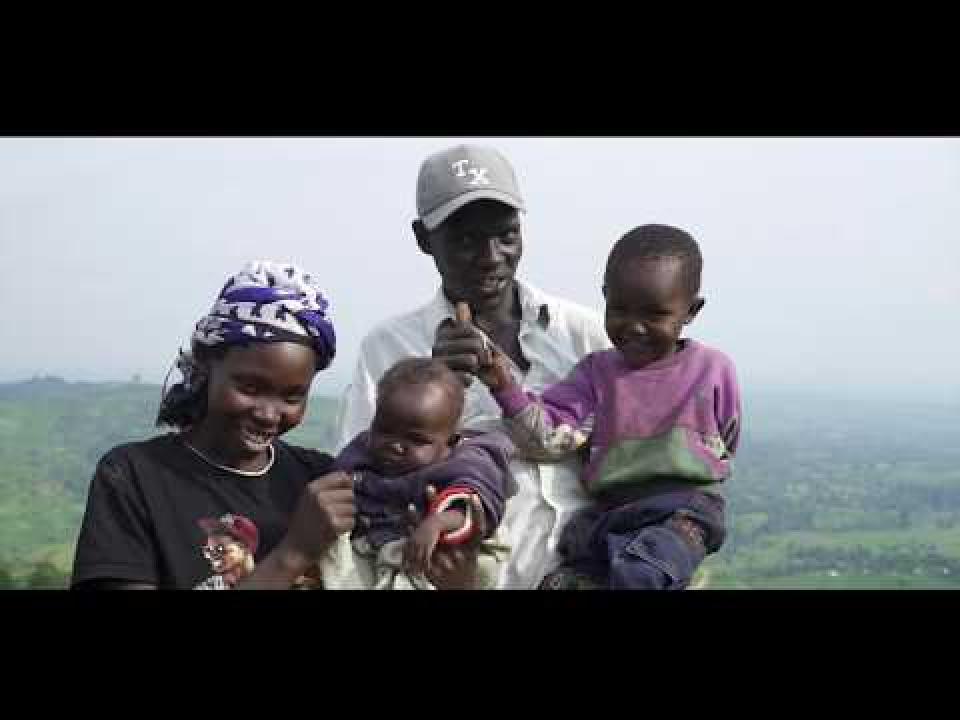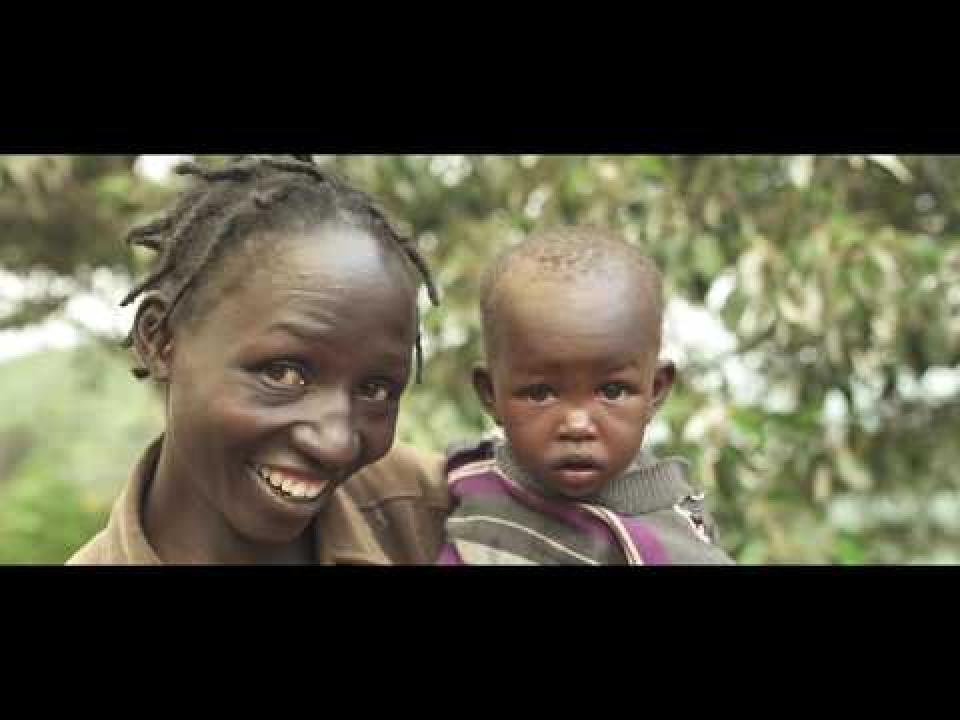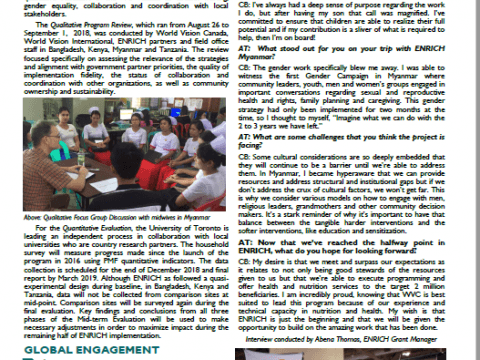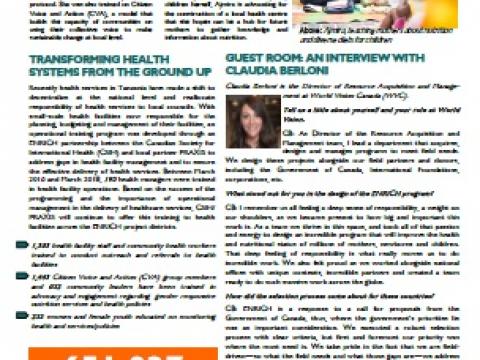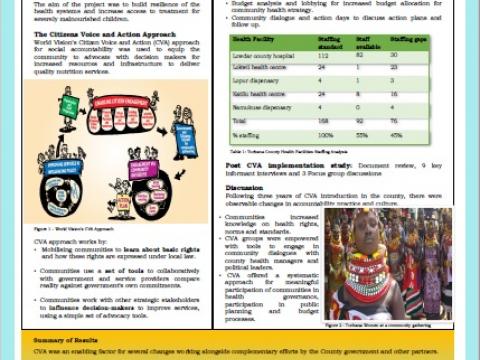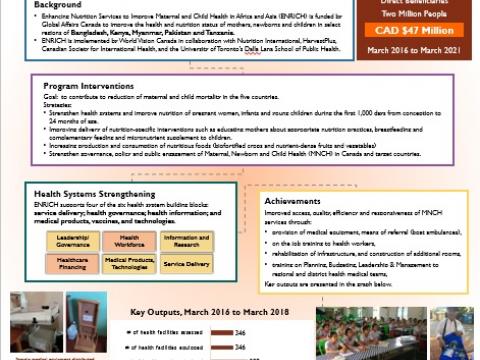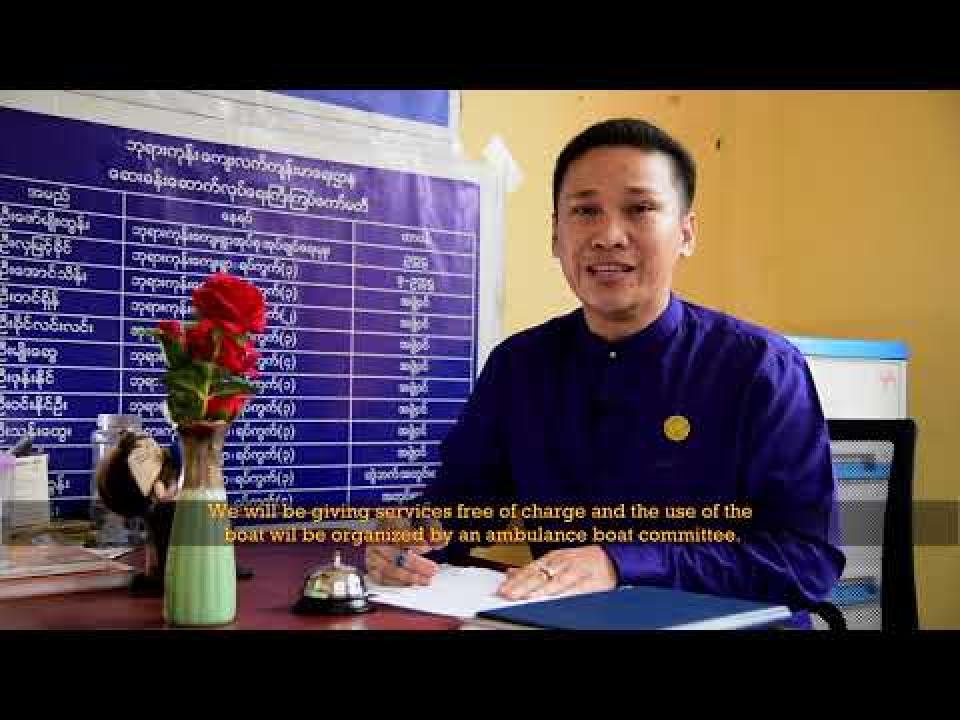
Maternal, Newborn, and Child Health
Improving Postnatal Care for Newborns in Community and in Clinics
Within the community, community care comes through the training and support of Community Health Workers (CHWs). World Vision supports more than 184,000 CHWs in 40 countries to integrate newborn and postnatal interventions and care.
Timed and Targeted counseling (TTC) is a community health worker/volunteer approach that offers cost-effective interventions for the mother and family in an effort to provide ideal newborn care.
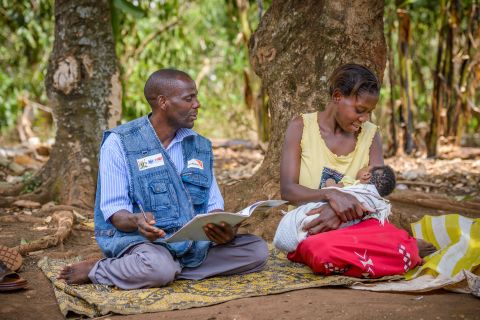
World Vision is active in Health Systems Strengthening, and seeks to improve health systems through implementing Citizen Voice and Action, which provides a platform for dialogue between the government and the community to advocate for improved services.
World Vision equips faith communities through its Channel of Hope for MNCH programmes - a powerful methodology that serves to change behaviour and strengthen health systems. It addresses social and religious barriers to improve health-seeking behaviours, reproductive health, and religious beliefs that affect health.
Our Work
Within the communities, World Vision protects mothers and newborns from deadly diseases through medical treatment and interventions.
From 2012 to 2017, World Vision partnered with John Hopkins University on the five year Child Health and Nutrition Impact Study (chNIS), designed to measure the impact of MNCH on newborns and mothers in Cambodia, Guatemala, Kenya and Zambia.
World Vision participates in International Conferences, such as Women Deliver and the International Conference on Family Planning.
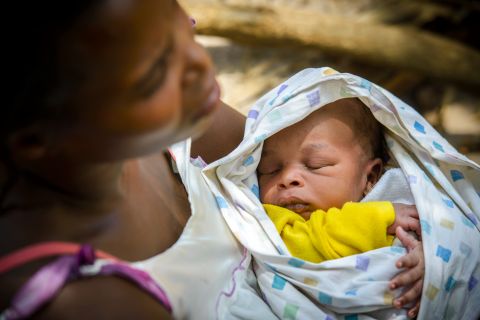
Global Advocacy and Commitments
-
The UN Global Strategy for Every Woman, Every Child (EWEC)
-
Every Newborn Action Plan (ENAP)
Examples of our Work
The Born on Time project was the first public-private partnership dedicated to the prevention of preterm birth, bringing together the collective expertise of World Vision, Plan International, Save the Children, the Government of Canada and Johnson & Johnson. Implemented from 2016 to 2021, BOT worked to improve health system delivery in Bangladesh, Ethiopia and Mali, where preterm birth is a contributing factor in more than a third of newborn deaths. Health system uptake was increased through empowerment of women, girls, men, boys and community leaders, and health system delivery was improved through:
- Training health care providers and community health workers to provide quality care for women and adolescent girls before, between, and during pregnancies, including Basic Emergency Obstetric and Newborn Care, as well as Supportive Supervision and Clinical Mentoring trainings
- Improving local health facilities with essential equipment, supplies, and supply chain management for quality reproductive, maternal, adolescent, and newborn care
- Strengthening referral systems for high-risk deliveries, and preterm, low-birth weight babies
BOT targeted four 'LINC' factors: Lifestyle, Infections, Nutrition and Contraception and supported:
- Prenatal services for 465,420 pregnant women and adolescent girls
- Skilled delivery for 382,171 pregnant women and adolescent girls
- Newborn care for 343,474 newborns
- Family planning for 2,165,909 adolescents and adults
Learn more in the BOT Final Summary Report.
In hopes to reduce infant mortality rates by at least 20%, World Vision Ireland implemented the Access to Infant and Maternal Health (AIM) Health Plus Grant, supported by Irish Aid, from 2017 to 2022. The goal of the programme was to decrease the number of maternal and child deaths from preventable causes in Mauritania, Sierra Leone, Tanzania and Uganda.
AIM Health Plus Digital Health Brief
The Australian grant in East Africa hopes to strengthen and improve newborn health by providing access to services that will help in prevention of infant mortality. World Vision Australia has partnered with World Vision Kenya, World Vision Uganda, World Vision Rwanda and World Vision Tanzania to achieve the vision of the organization
USAID's Child Survival and Health Grants Programme (CSHGP) worked towards ending preventable and child maternal deaths (EPCMD) in hopes that more mothers will survive childbirth and that more children will grow up to live long and healthy lives. A child survival and health grant has been implemented in World Vision South Sudan.


